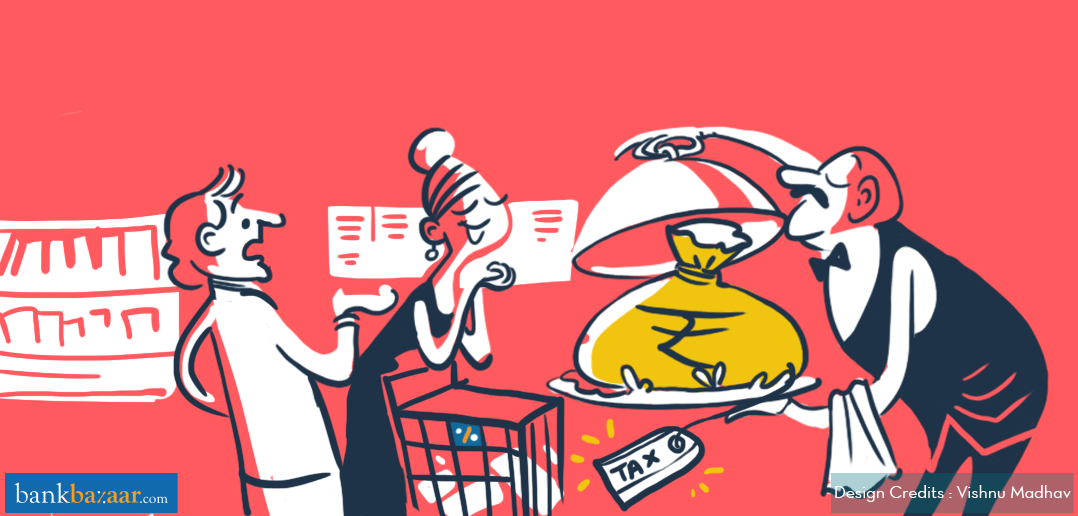With e-commerce shopping festivals taking over the scene, it only makes sense for you to understand the tax side of all the exciting offers.

Online shopping festivals are all the rage these days, and reasonably so. Apart from the obvious convenience of shopping for almost anything under the sun whilst still lying in bed in your pyjamas, these festivals have brought many consumers alike a whole lot of joy with great offers, discounts and benefits.
One very common offer handed out during these festivals is the cashback offer, wherein you, as a consumer, will get a certain amount credited to your account if the product you buy is eligible for the cashback offer. Now, what a lot of people overlook or don’t stop to consider is the taxability of these cashback offers.
Technically, any cash benefit received by an individual as a gift from someone other than a relative may qualify as income under either ‘Income from Other Sources’ or ‘Profits and Gains from Business/Profession’.
Decoding section 56(2)(x)
This section, under the Income Tax Act, relates to the levying of tax in cases where any sum of money is received by a party without consideration. Popularly referred to as gift tax, this tax is usually levied if the value of the sum received is above Rs. 50,000 during the prevailing financial year.
Now, let’s say this reward is not given out as cash back, but rather as FREE accessories such as gadgets, etc. In these cases, this provision will not be applicable. Here, the market value of the gadget that is being given away can be taxable if it is purchased for business or professional use.
Additional Reading: How To Calculate Capital Gains And Save Tax
In simpler terms
Gift tax can be considered only when monetary benefits of any kind are received as a credit in the bank account, card or even an e-wallet. Gifts such as freebies do not involve the credit of a particular sum of money into the receiver’s account, and hence will not be applicable for gift tax.
Additional Reading: Income Tax Changes You Should Be Aware Of
Various Cashback schemes
Cashback schemes vary from case to case. For instance, if you’re shopping online and choose to pay via Credit Card or Debit Card, the bank will credit you the fixed cashback amount into your Credit Card account or account connected to your Debit Card.
If you shop for personal consumption, the cashback amount will be treated as a part of ‘Income from other sources’; of course, if the amount is higher than Rs. 50,000 as previously stated. If you’re buying stuff for business and receive cash back on it, you’ll have to treat the item as a capital asset and you can claim depreciation on the total net amount.
Another scenario would be if you received cash back less than Rs. 50,000 but you also got some other monetary gifts from non-relatives that take your total credits under this category above Rs. 50,000. Will you have to pay tax? Turns out you will.
Let’s try and understand this better with an example. Say Mr. Sharma buys a mobile phone for Rs. 40,000 and enjoys a Cashback of Rs. 10,000 on it. Now, around the same time, Sharma’s friend gifts him Rs. 42,000. Now, Sharma’s aggregate credit crosses Rs. 50,000; Rs. 52,000 to be precise. Sharma will have to pay tax for this amount under ‘Income from other sources’.
Additional Reading: 5 Uncommon Tax Deductions That Will Help You Save Big
What about instant discount schemes?
Well, the discount offered by the e-commerce website is usually subtracted from the listed price, leaving the customer only with the task of paying the discounted amount. Here too, the scope of tax depends on the purchase purpose; if it’s personal, then tax is not a worry. If it’s business or for professional use, the net amount paid is allowed as business expense. However, if it is a capital asset such as ACs, laptops, etc., then depreciation will be allowed on the net amount paid.
If you like getting cash back, you may want to explore some exciting Credit Cards that offer you cash backs and the best shopping benefits!